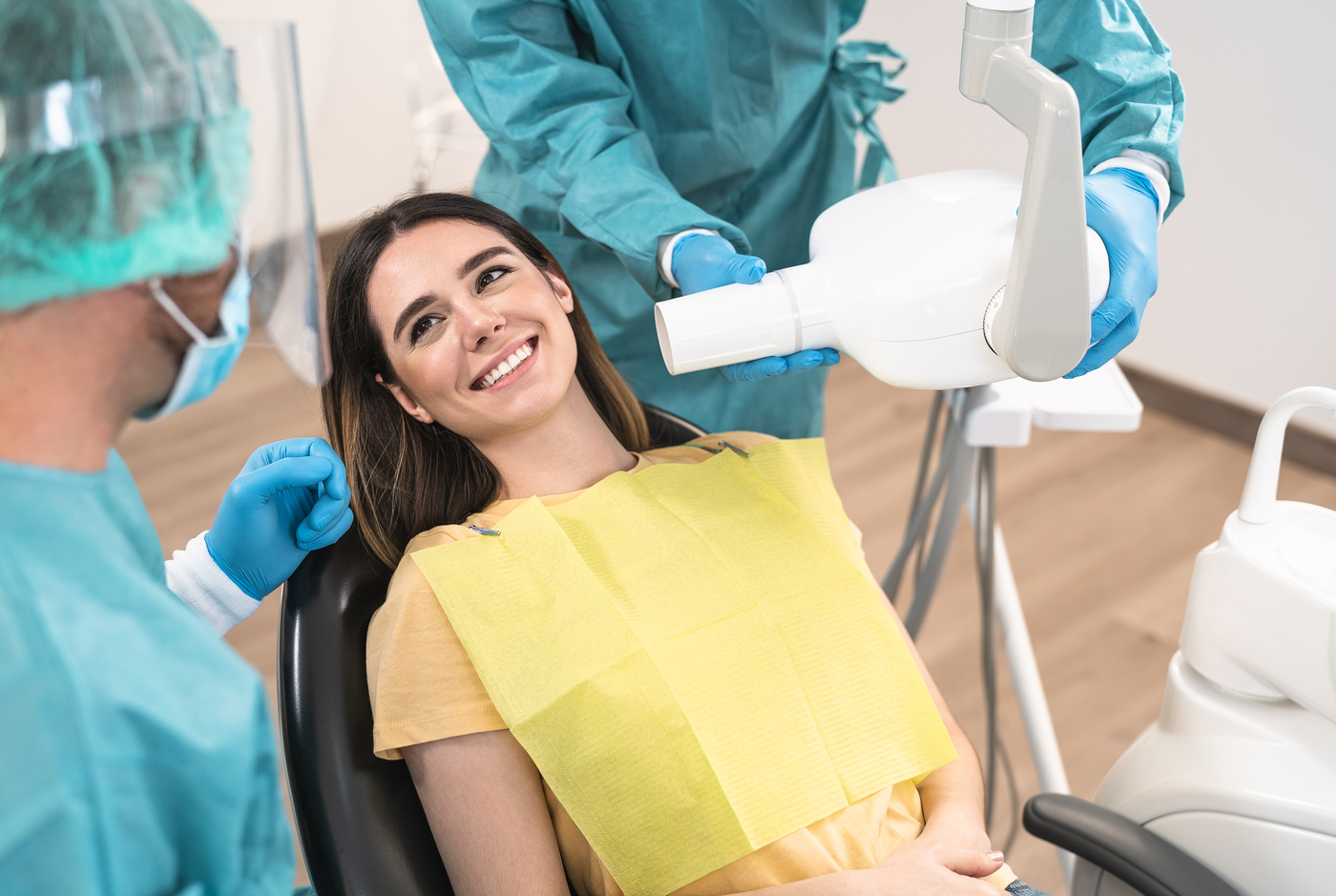
Third molar extraction, long procedures, posterior procedures, and mandibular anesthesia are all risk factors for sudden onset of jaw and muscle sprain/strain (JAMSS) from hyperextension. As an oral surgeon you know the risks involved with surgery and you do everything you can to protect and care for your patients. But what are you doing about possible jaw trauma and TMD that may result hours or days after surgery?
Studies have found that trauma during dental care can occur when the mouth is open too wide or for too long, resulting in strain to the masticatory muscles and/or sprain to the temporomandibular joint. If left untreated jaw injury can become a progressive disability. Studies confirm that third molar extraction is a known risk factor for developing post-op painful jaw joint and muscle conditions.
Despite minimizing risks for jaw injury with surgical treatment of the patient, some patients do develop symptoms. Until QuickSplint®, there has never been a simple practical and cost-effective way to respond to this problem. QuickSplint® helps Oral Surgeons treat those patients with lingering jaw pain, providing vital first aid that can prevent the injury from progressing to a more significant condition. We have made it simple and able to be provided by staff and QuickSplint is delivered chairside, in less than 5 minutes.
QuickSplint® is a simple anterior appliance covering the upper or lower teeth from bicuspid to bicuspid. The device has a rigid plastic shell that provides an occlusal surface and is retained by VPS liner to customize to the supporting dentition. QuickSplint® is perfect for short-term overnight use for a few days.
Patients who brux or clench represent a unique risk pool. QuickSplint® provides added patient comfort, and doctor peace of mind by reducing bite-force (microtrauma) on the first nights.
This allows pericranial musculature to relax, avoids uncommon jaw positioning, minimizes the possibility of dislodging or destabilizing and helps the surgical site to heal.
